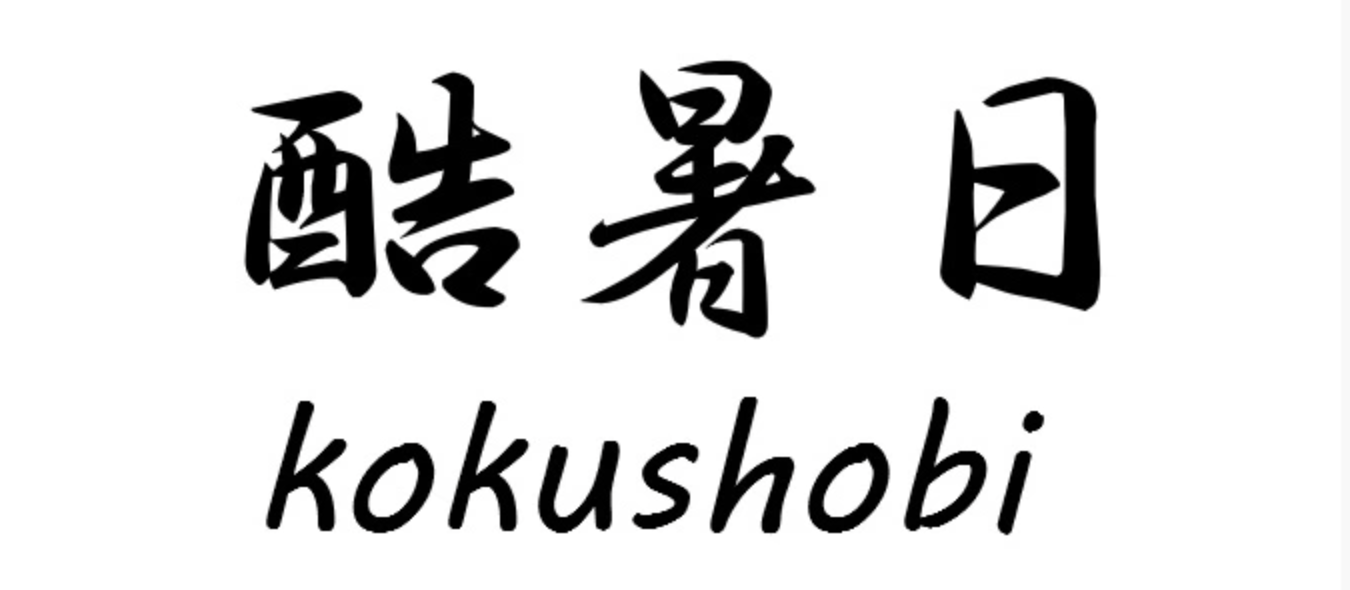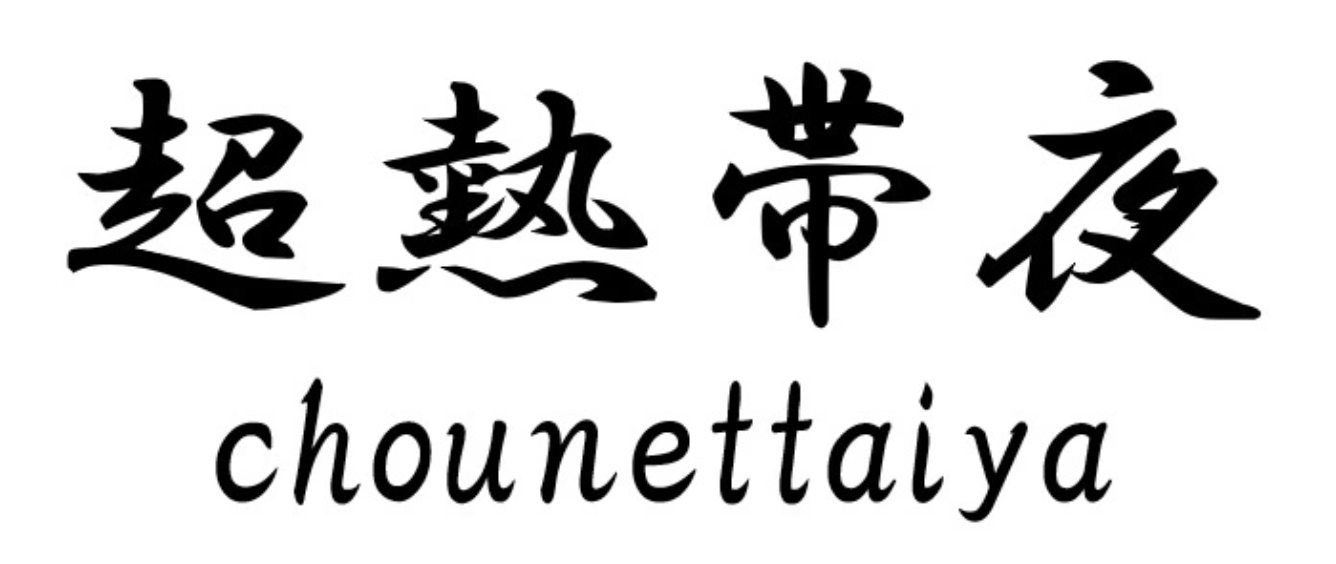In Japanese, the word for “hot” (as in hot weather) is atsui. But when there’s a day or night that’s really hot, there are actually official government terms for them.
According to the Japan Meteorological Agency (part of the the Ministry of Land, Infrastructure, Transport and Tourism), if the temperature rises above 35 degrees Celsius (95 degrees Fahrenheit), then it’s classified as a moshobi, or “ferocious heat day.” Meanwhile, if even the nighttime low is still above 25 Celsius (77 Fahrenheit), then we’re having a nettaiya, or “tropical night.”
But what about when things get even hotter? The government’s terminology caps out at those 35/25-degree thresholds, so the Japan Weather Association, a non-government meteorological association, took it upon itself to come up with new terms through a poll of 140 of the organization’s members.
After tallying the responses, the association has dubbed days with a high temperature of over 40 degrees Celsius kokushobi, or “cruel heat days.”

And for those nights that go beyond nettaiya? Here the Japan Weather Association decided to keep things descriptive and simple, with the survey deciding that if the overnight low never dips below 30 Celsius, then it’s a chounettaiya, or “super tropical night.”

Thankfully, neither kokushobi nor chounettaiya are all that common in Japan. Since the start of modern record keeping in 1875, there have only been 67 recorded incidences of temperatures above 40 degrees Celsius, observed at a total of 32 locations, mostly in the Kanto and Tokai regions of east and central-east Japan. Super tropical nights are even rarer, having been observed only 15 times in 11 locations, almost all of them in the Hokuriku region which runs along the north-facing coast of Japan’s main island of Honshu (Niigata Prefecture has had seven recorded chounettaiya, and no other prefecture more than two).
However, records show only eight kokushobi occurrences prior to the year 2000, with 40 occurring since 2018 and the most recent in June of this year. We may end up seeing another before the summer ends, and the Japan Weather Association is cautioning everyone to be aware of the temperature and take adequate measures to prevent dehydration and heat exhaustion.
Source: Tenki.jp via Hachima Kiko
Read more stories from SoraNews24.
-- It’s so hot in Japan that people are cooking food in/on their cars【Photos】
-- What colors of clothing will keep you cooler in summer? Japanese researchers experiment
-- Japanese summer is worse than summer in Death Valley, says our correspondent, a seasoned traveler
- External Link
- https://soranews24.com/2022/08/06/japan-weather-association-creates-new-words-to-describe-merciless-summer-heat/
 Take our user survey and make your voice heard.
Take our user survey and make your voice heard.















24 Comments
Login to comment
kohakuebisu
One good thing about this is that they'll probably start counting them. They already count the number of days with the other definitions they have like "high over 30C" and "low under 0C". The climate is clearly changing, but data like this can show how even or spiky that change is.
The "tropical night" one matters to me because its a decent measure of whether air conditioning is needed. If its 25C overnight, your house won't cool down very much. Taking in cool night air and closing the windows in the morning is a classic form of natural cooling. We're at 800m above sea level and the summer nights, historically under 20C, are getting close to 24C now. We built a house without air conditioning, but have had to retrofit it upstairs. This is more difficult and ends up uglier when the electrics and ductwork are not in place. I wouldn't build a house without air con now.
Derek Grebe
My local government made a point of trimming all the trees along the street back almost to the trunks, just as the leaves started to sprout, during a week of 35C heat.
Each tree got a seven-man team to make sure we didn't try bounding over the tree like spring-heeled Jack.
Now the concreted streets get the full blast of the sun all day, which is immediately radiated out again. It's like Fury road out there. No shade, and the parched soil turns into airborne dust at the slightest breeze.
If only there could be something else we could do about the heat than pay for a panel of government drones to give us new words to describe the ferocious summers, to which we dutiful taxpayers can repeat, "moshobi, desu ne" and smile at each other with a defeated, shoganai shrug.
tamanegi
Another junior high schooler collapsed with heat stroke playing "club" soccer at my local park around noon on Saturday in Osaka. An ambulance took the child to hospital and the game was abandoned. Third time this summer I've witnessed this and it was the same junior high school.
Noriyon73
If I remember my high school French/English grammar correctly, no mercy means means without mercy. If it is no, (notice the comma?) mercy, it means "we" do not want it. It is no, thank you as if you are offered natto.
Richard Burgan
I should say come on down to Okinawa, it's cooler here. The air temperature here never gets above 36 C. But, I would be fooling you because the heat index often goes to 46-48 C because of the humidity. Okinawans have their own set of terms for hot weather: あちこーこー, 熱こーこー, 熱ちこーこー Here, they drink hot tea to cool off. (It makes you sweat)
Sven Asai
@Tokyo-m Tokyo hasn’t trees? Maybe you should buy once a train ticket and go into a nice park of the many or just travel quite some minutes westwards, where it’s still Tokyo-to and very rural with many trees, mountainous etc and you’ll probably find so many trees that you wouldn’t even find a way out of the forests without a good map or way signs.
wallace
Ban all fossil fuel vehicles from Tokyo city center. Turn the roads into parks and walkways. Plant trees on top of skyscrapers. Or move out into the countryside.
Derek Grebe
Sven Asai - or maybe we should stop p!ssing away our tax revenue on having teams of functionaries buzz-sawing the trees back year after year when they have the temerity to try offering us a little shade on the blistering concrete??
Antiquesaving
Not sure your point in English but in French it is "non merci" with an "n" after "no" making it "non" like no and "merci" with an "I" not a "y" non merci means no "thank you "
Now having never really studied English (native French speaker) as far as I know "no mercy" would be " sans pitié" or in Quebec we may say
"pas de pitié" (pronounced: pas'd pitié) but that is more "no pity"
CKAI
Im here for the tag line on this picture! NO MERCY
garypen
I'm just guessing. But, the Japan Weather Association might be more interested in Japanese words.
Yrral
Wallace have you been to Texas,it has been hotter than hell,we got 3 more weeks,until it moderate,we are going into peak hurricane season ,our weather is done by the local newscaster,with info from the National Weather Service,they are way more advanced than JMA Google NWS
Yrral
US pass climate bill in Senate Google US Senate Climate Bill
Spitfire
@Derek Grebe,
You are spot on.
I am often amazed at the timing of the local tree trimming
Just as Summer gets into full swing the landscapers arrive and give a buzz cut to everything in sight.
It is totally unfathomable why they do it.
What's more they always trim at local community centres where many people gather and the local authorities try to grow a 'green curtain' to show how 'eco' they are. They don't see the irony in gloating how effective their goya is in providing shelter from the unrelenting sun while the trees in the background are all bald.
Seems common sense isn't so common.
If they did it in Winter there would be so many less leaves to cart off to the incinerator.
JeffLee
I'm in Bangkok now, supposedly one of the world's hottest cities. Spent last night sitting outdoors watching a band and drinking beer. I wouldn't and couldn't do that on a typical August night in Tokyo. Sure it was hot here, but Tokyo takes the cake in terms of oppressive sweat-inducing mugginess.
kurisupisu
On the sea coast in Thailand the weather is pretty perfect and this year there isn’t much rain
gokai_wo_maneku
No Mercy? I think that CRAZY!!! is much more descriptive!
kurisupisu
Having visited and flown above Tokyo more than a few times, I can say that greenery is not a strong point…
virusrex
...yet.
Unless a miracle happens and humanity develops a way to counter the impact over the environment these days and nights of extreme heat are going to be more and more common on the following years.
nandakandamanda
As the article expresses, no mercy = merciless. Without mercy.
Take one step outside, and it’s “No thank you!”
They probably did not want to mention this topic before the Tokyo Olympics with Japan’s mild summer weather.